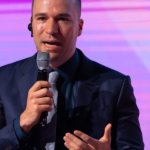The lawsuit is a setback to the AI search engine’s efforts to play nice with online publishers, especially media organizations, whose content it heavily relies on to produce its AI answers.
Perplexity’s AI-powered “answer machine” crawls websites to access content, then uses that material to generate concise answers for users that include citations. The answers summarize information from multiple sources, including news articles. Many news publishers, however, worry that the rise of AI search engines such as Perplexity could pose an existential threat to the industry, diverting audiences away from their websites and undermining their advertising and subscription models.
To try and assuage some of these concerns, Perplexity has signed revenue-sharing partnerships with outlets including Fortune, Time, Le Monde, Der Spiegel, and the Los Angeles Times, and has promised to give partner organizations access to its enterprise tools to build their own AI products.
“There is really no world in which Perplexity is successful but publishers are not,” she said.
However, these efforts haven’t managed to prevent a growing list of media companies from pursuing legal action against the AI startup.
The News Corp. case and the latest lawsuit brought by Nikkei and Asahi Shimbun make similar claims but will be assessed under different copyright laws.
In Japan, AI training on existing copyrighted works is partially permitted, but restrictions apply when content is copied or stored without consent or when publishers’ technical safeguards are ignored. In contrast, U.S. copyright law generally offers stronger protections for publishers, with courts scrutinizing reproduction and commercial use of content.
Nikkei and Asahi’s lawsuit also claims that Perplexity has damaged the papers’ credibility by providing incorrect summaries and information falsely attributed to the newspapers’ articles, violating the Unfair Competition Prevention Act, a Japanese law that prohibits various forms of unfair competition to ensure fair practices in the market and protect businesses from misconduct such as misleading advertising.
Perplexity did not immediately respond to Fortune’s request for comment.









